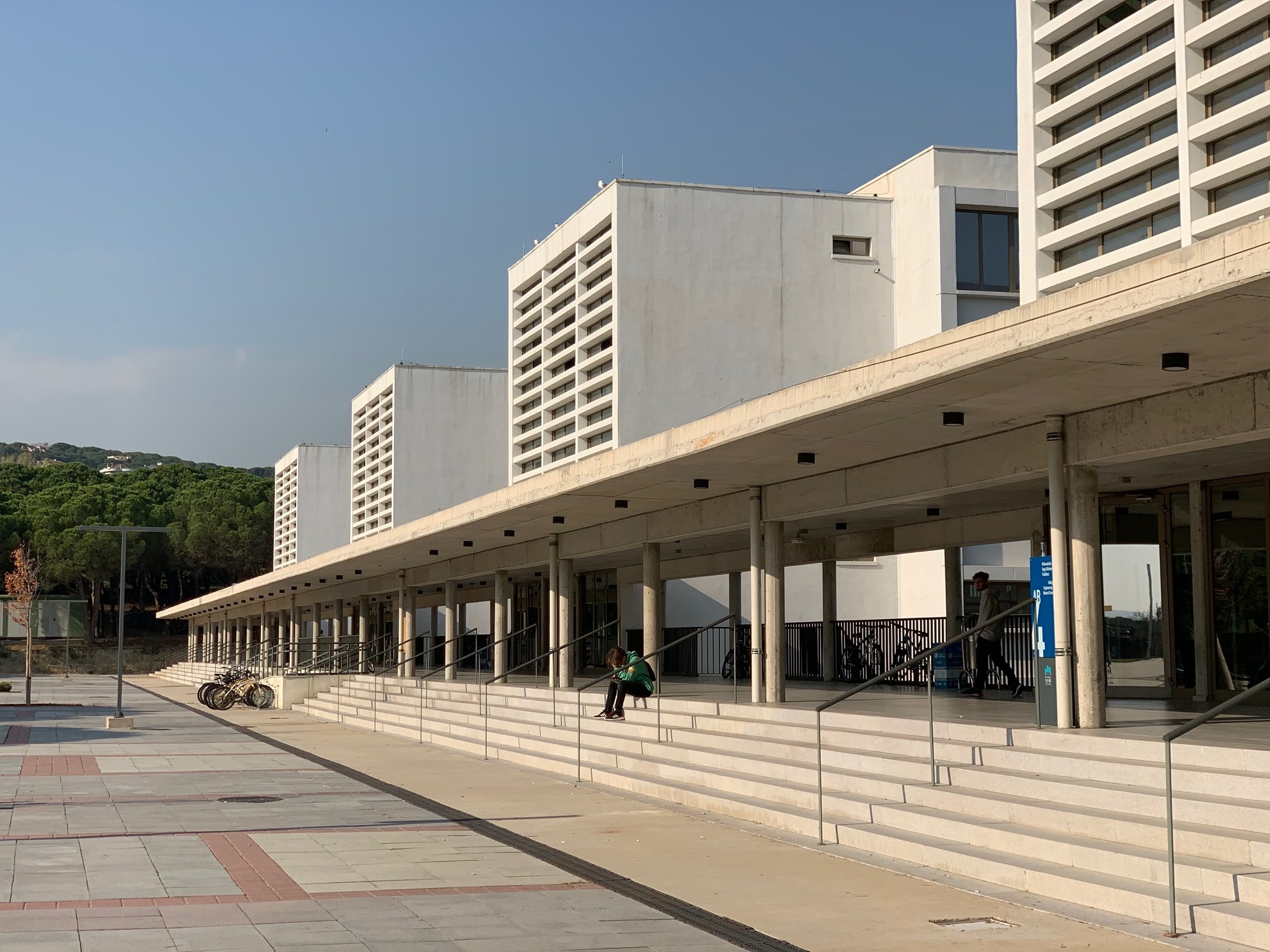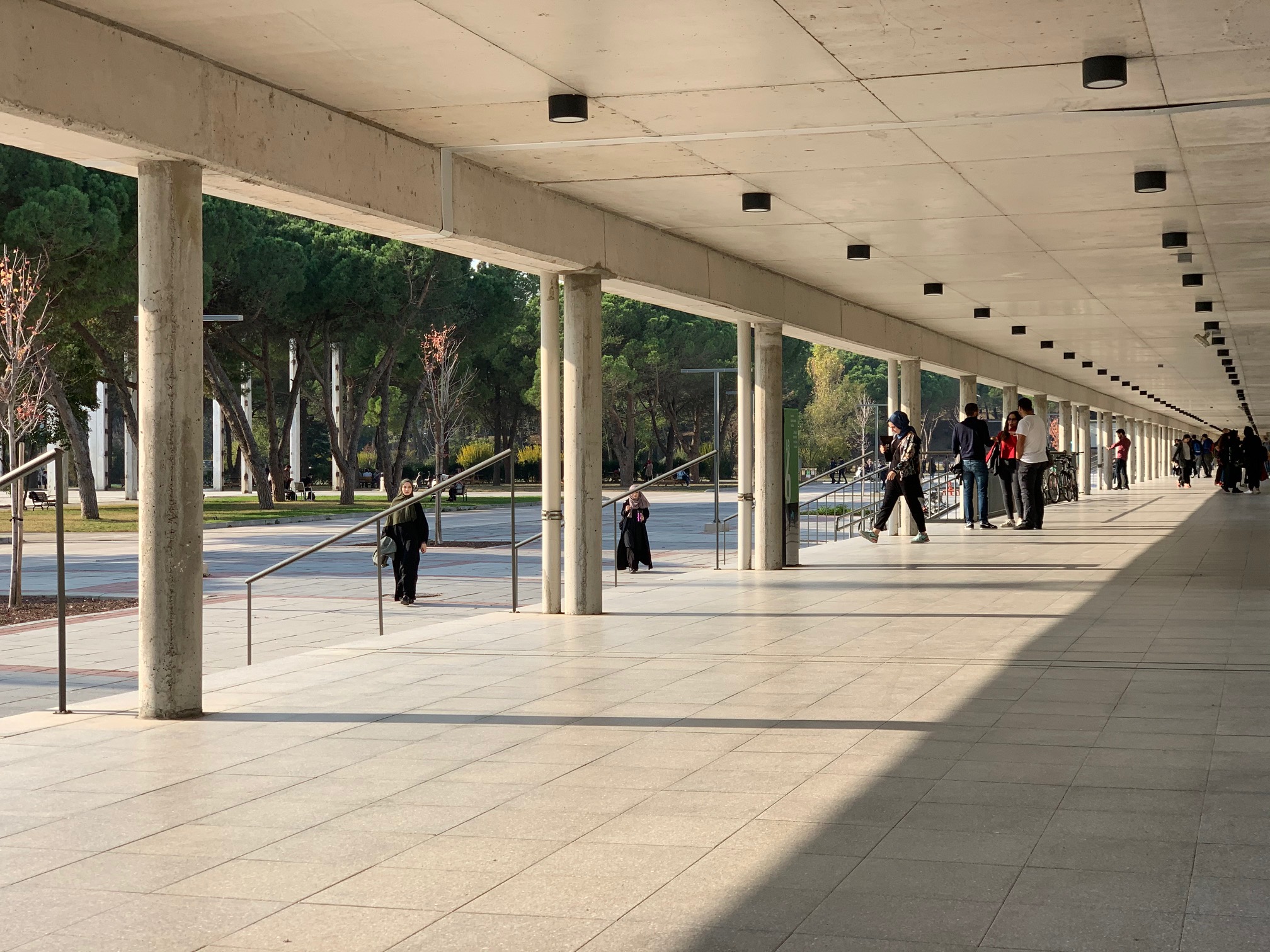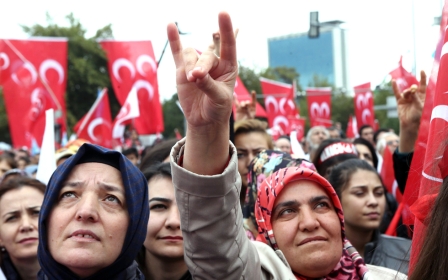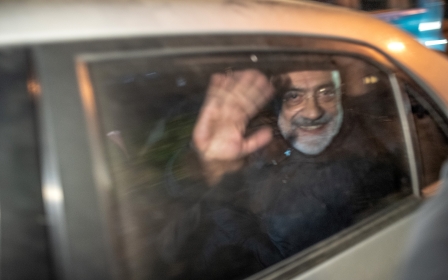An elite university in Turkey pays the price for Erdogan, Davutoglu feud

Since its foundation, Turkish conservatives have viewed Istanbul Sehir University as an institution that may lead the way in upending secular dominance in academia by providing education based on universal values.
Then prime minister and current president, Recep Tayyip Erdogan, gave an inaugural speech in 2010 at the opening ceremony and declared his wholehearted support to Sehir in its endeavour to become a scientific organisation that is respected internationally. He was pictured with a smiling Ahmet Davutoglu, the primary founder of Sehir and then foreign minister and professor.
Fast forward 10 years and the university, which has more than 7,000 students with a significant number of foreigners, is now in a state that, while it has millions of dollars in income, it cannot pay the salaries of its professors nor make the financial transactions necessary for the scholarships it provides for thousands of students.
The reason behind the financial issues is a freeze on Sehir's assets ordered by a Turkish court after state-owned Halkbank asked for an arrestment of funds based on its concern that the university would not be able to pay back the $70m credit it had taken from them.
But for many, the matter is beyond a technicality and is likely an indication of how far the divisions within the ruling Justice and Development Party (AKP) have gone.
New MEE newsletter: Jerusalem Dispatch
Sign up to get the latest insights and analysis on Israel-Palestine, alongside Turkey Unpacked and other MEE newsletters
“I suspect that there is a political impact here. The procedures here aren’t normal,” said Omer Dincer, the chairman of Istanbul Sehir University’s board.
Others were more clear about the political influence.
“It isn’t a coincidence that we started to have problems with Halkbank earlier this year as Davutoglu embarked on a new political journey against Erdogan,” an official affiliated with Sehir University told Middle East Eye.
At loggerheads
Since the beginning of this year, Davutoglu, once Erdogan’s respected foreign-policy lieutenant, has increased his criticism of the government, eventually resigning from the party in September amid disagreements over the state of rights and freedoms in the country.
Halkbank’s reasoning in its freeze of all bank accounts belonging to Sehir University is based on a years-long court battle over valuable land the university owns. An administrative decision had granted the land to Sehir, however, a lower administrative court in March issued a stay of execution on the donation of one of the university's seven lots of property.
Claiming that there was a risk Sehir would not pay the credit amid a potential loss of assets, Halkbank immediately froze the university's account within the bank itself.
“They basically prevented us from paying the instalments of the credit because we couldn’t use our funds at Halkbank accounts,” Mehmet Aytekin, a senior official at Sehir University, told MEE.
“We tried to convince them to release our funds in the summer by pledging another valuable piece of land we own near Bosphorus. They initially said yes, but somehow they changed their minds.”
The crisis hit a tipping point last month when Halkbank, in the middle of negotiations in which Sehir thought a settlement was reached, went to court to ask that all of the university's accounts in other banks be frozen.
“Weirdly, the court was in the European side of the city, whereas their headquarters is located in the Anatolian side. Why then was the case heard by a court in the European side?” Aytekin says.
Sehir's initial appeal was rejected and now the case is in the appellate court, which could take two to three months to issue a decision. In the meantime, the university will be without funds and may fail to pay even its utility bills.
Davutoglu, in a statement earlier this month, condemned the government for politicising the whole process and likened the government's efforts to a military coup that toppled an Islamist government in the 1990s.
“There is nothing illegal or against the rule of law in Istanbul Sehir University’s land allocation. What’s happening to Sehir is part of a deliberate political effort,” he said.
Halkbank denied all charges in a media statement and said all actions were taken because Sehir has failed to make its payments.
People close to the government, on the other hand, blame Davutoglu for using the university as a tool for his political agenda.
“This is a commercial matter. The university didn’t care much about its debts because they thought they had Davutoglu’s backing,” one source with close ties to the Turkish government told MEE.
“Eventually the bank is asking for its money back. Now he presents this picture as if it is all political.”
Future at stake
Students and professors are worried about the future of the university, which they describe as a haven where diverse groups of people from left to right coexist with the full enjoyment of academic freedom.
Two student founders of what they call the “Sehir is Ours” initiative were trying to organise resistance through social media to draw attention to their university because local media was mostly silent on the issue.
“We are a family. And we are scared that what we have here academically and socially will be lost after the government seizure,” said Ahmet, who like other students declined to give his real name.
Translation of tweet by Sehir students who organised a forum to discuss how to save the university: It doesn't matter if it's in the past, present or future. Sehir always belongs to us all.
Dr Alim Arli, a sociology professor at Sehir, told MEE that he was worried about losing a successful university that they've been building together as colleagues for the last 10 years because of a simple court battle.
“We are very successful in terms of attracting brilliant students and proud of the education we provide to them, which is exceptional in Turkish standards. We don’t want to lose it,” he said.
Manuel Knoll, a prominent philosophy professor at Sehir, told MEE that the university enjoyed academic freedoms rarely found in Turkey.
“They can change the academic structure or shut down the university altogether,” he said.
Sehir University officials believe the government is trying to seize their institution through the only legal exception that allows them to do so - financial difficulty that could disrupt the educational activities.
“Our total assets in this campus are worth double the credit we took. And with more than 96 percent enrollment rate and a good income, we have every resource to make the payments for the credit in time. But they won't let us,” Aytekin says.
Meanwhile, the Council of State last week issued its final decision that the disputed lot of land must be returned to the government because it was inappropriately granted to the university.
Ultimately, it will be up to Erdogan's government to decide what to do with the issue of the land.
But professors at Sehir believe that they have already crossed the Rubicon because Turkey’s Higher Education Board has started preliminary procedures to seize the university.
One academic said the legal scheme that the government used was sophisticated enough to inspire an academic work titled, “How to destroy a university.”
But for students, their predicament is more important than Turkey’s political feuds.
“We really don’t care about the politics. We just want our university to remain as it is," Mehmet said. "That's it."
Middle East Eye delivers independent and unrivalled coverage and analysis of the Middle East, North Africa and beyond. To learn more about republishing this content and the associated fees, please fill out this form. More about MEE can be found here.





